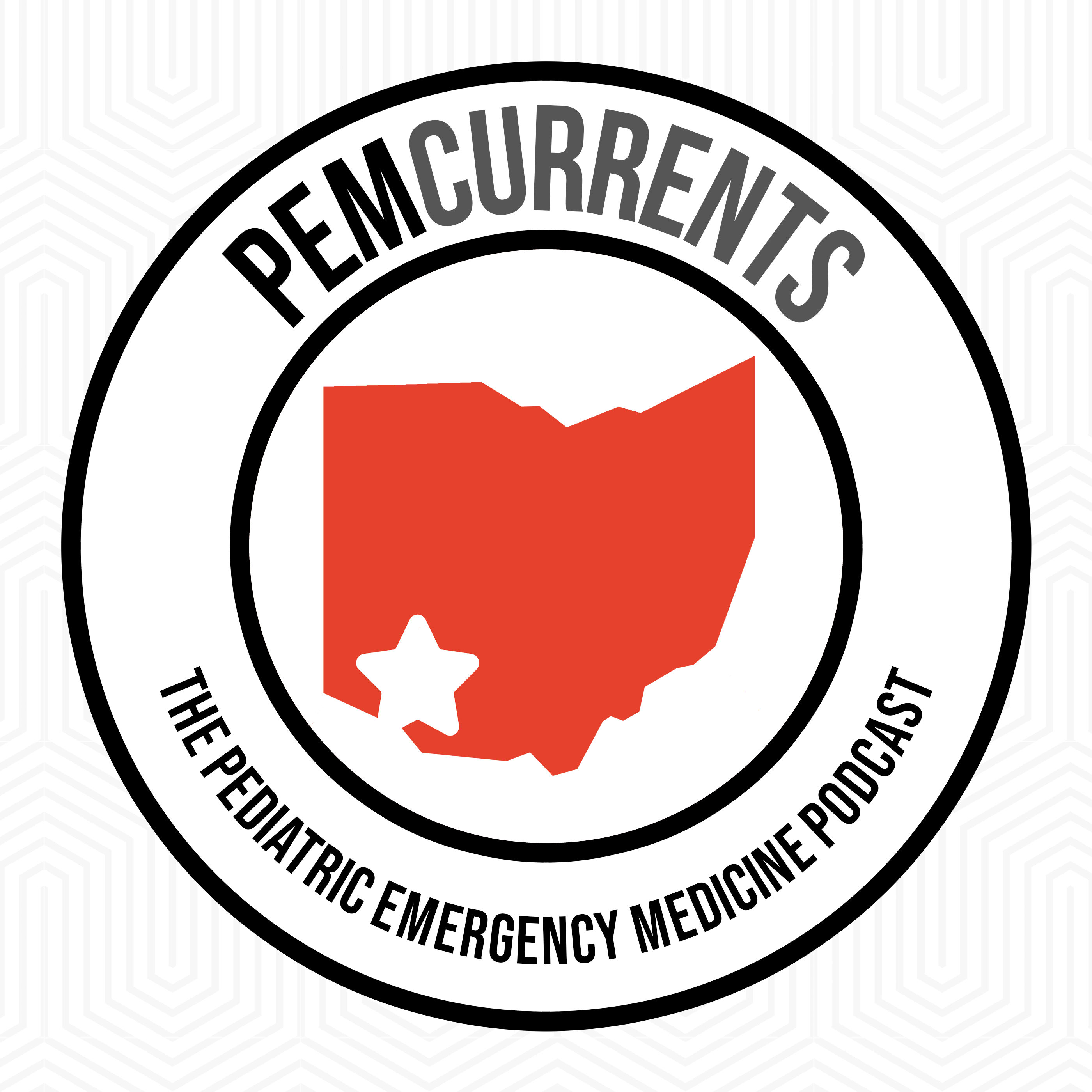We are in the midst of a staggering mental health crisis. Thousands of children and adolescents spend days at time in Emergency Departments waiting for definitive mental health disposition. This podcast episode hosted by Brad Sobolewski (@PEMTweets) and co-authored by Dennis Ren (@DennisRenMD) is all about what we should consider when boarding children in the ED for mental health reasons. It is also the final episode in a 5 episode series focused on agitation in children and adolescents.
After listening to this episode you will be able to:
- Identify some of the reasons why we are boarding so many children in the ED and which children are the highest priority
- Describe the challenges these patients face as they await inpatient psychiatric care
- Describe best practices and what we should be doing for them
- Discuss some of the stresses that these children place on the healthcare system, and possible alternative strategies.
This episode is a co-production of the Emergency Medical Services for Children Innovation and Improvement Center whose mission is to minimize morbidity and mortality of acutely ill and injured children across the emergency continuum.
Other Episodes in the Agitation Series
Episode 1: Differentiating organic versus psychiatric causes of agitation and altered mental status | Supplementary EMDocs article
Episode 2: Non-pharmacologic management of agitated children | Supplementary EMDocs article
Episode 3: Pharmacologic management of the agitated child | Supplementary EMDocs article
Episode 4: Safe prehospital transport of the agitated child | Supplementary EMDocs article
Listen

Managing Pain in Sickle Cell Vaso-Occlusive Crises – PEM Currents: The Pediatric Emergency Medicine Podcast
Subscribe
EMDocs Collaboration
EMDocs.net – the excellent Emergency Medicine site will also be contributing a supplementary article for each episode that will be posted each Friday following the release of the podcast episode. These articles will take another look at the content included in this episode.
Special thanks to Manpreet Singh, MD (@MprizzleER) for helping to put this collaboration together.
EMSC IIC
To learn more about the Emergency Medical Services for Children Innovation and Improvement Center visit https://emscimprovement.center
Email km@emscimprovement.center
Follow on Twitter @EMSCImprovement
EMSC IIC: Pediatric Education and Advocacy Kit (PEAK): Agitation
PEAK Agitation resources
- EIIC/TREKK: Care of the Agitated Patient Algorithm
- EIIC/TREKK: Agitation Medication Dosing Recommendation Table
- EIIC: De-escalation Tips for Pediatric Agitation Infographic
- EIIC: Emergency Department Management of the Agitated Pediatric Patient Interactive Learning Module
- EIIC: Agitation in Neurodivergent Patients with Drs. Alice Kuo and Ilene Claudius Podcast
- EIIC: Safe Control of the Agitated Patient Webinar Series with Dr. Marianne Gausche-Hill
- New England EMSC: New England Regional Behavioral Health Toolkit
Disclaimer
The Emergency Medical Services for Children Innovation and Improvement Center is supported by the Health Resources and Services Administration (HRSA) of the U.S. Department of Health and Human Services (HHS) as part of an award (U07MC37471) totaling $3M with 0 percent financed with nongovernmental sources. The contents are those of the author(s) and do not necessarily represent the official views of, nor an endorsement, by HRSA, HHS, or the U.S. Government. For more information, please visit HRSA.gov
To learn more about the Emergency Medical Services for Children Innovation and Improvement Center visit https://emscimprovement.center
Email km@emscimprovement.center
Follow on Twitter @EMSCImprovement
References
Fiona B. McEnany, Olutosin Ojugbele, Julie R. Doherty, Jennifer L. McLaren, JoAnna K. Leyenaar; Pediatric Mental Health Boarding. Pediatrics October 2020; 146 (4): e20201174. 10.1542/peds.2020-1174
AAP-AACAP-CHA Declaration of a National Emergency in Child and Adolescent Mental Health
Jennifer A. Hoffmann, Polina Krass, Jonathan Rodean, Naomi S. Bardach, Rachel Cafferty, Tumaini R. Coker, Gretchen J. Cutler, Matthew Hall, Rustin B. Morse, Katherine A. Nash, Kavita Parikh, Bonnie T. Zima; Follow-up After Pediatric Mental Health Emergency Visits. Pediatrics March 2023; 151 (3): e2022057383. 10.1542/peds.2022-057383
Nordstrom K, Berlin JS, Nash SS, Shah SB, Schmelzer NA, Worley LLM. Boarding of Mentally Ill Patients in Emergency Departments: American Psychiatric Association Resource Document. West J Emerg Med. 2019 Jul 22;20(5):690-695. doi: 10.5811/westjem.2019.6.42422. PMID: 31539324; PMCID: PMC6754202.
Cushing AM, Liberman DB, Pham PK, et al. Mental Health Revisits at US Pediatric Emergency Departments. JAMA Pediatr. 2023;177(2):168–176. doi:10.1001/jamapediatrics.2022.4885
Nash KA, Zima BT, Rothenberg C, et al. Prolonged emergency department length of stay for US pediatric mental health visits (2005-2015). Pediatrics. 2021;147(5):e2020030692. doi:10.1542/peds.2020-030692
Lo CB, Bridge JA, Shi J, Ludwig L, Stanley RM. Children’s Mental Health Emergency Department Visits: 2007-2016. Pediatrics. 2020 Jun;145(6):e20191536. doi: 10.1542/peds.2019-1536. Epub 2020 May 11. PMID: 32393605.
Kraft CM, Morea P, Teresi B, et al. Characteristics, Clinical Care, and Disposition Barriers for Mental Health Patients Boarding in the Emergency Department. American Journal of Emergency Medicine. Nov. 2020. Doi.org/10.1016/j.ajem.2020.11.021
















[…] Fuente del artículo […]
Boarding a child with mental health problems in the ED can have several negative consequences. Firstly, the ED is typically not an ideal environment for the assessment and treatment of mental health conditions, as it lacks the necessary specialized staff, resources, and therapeutic interventions.
Nano CBD in USA